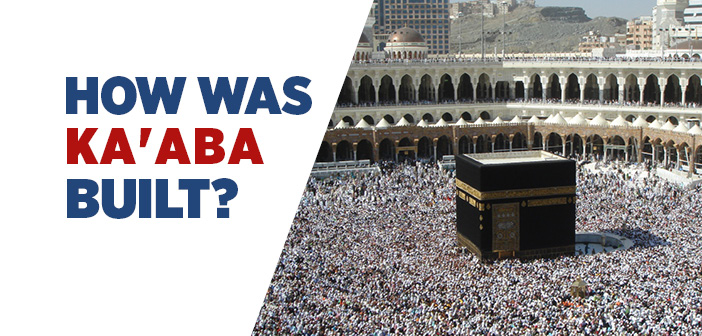What is Umrah? What is the importance and virtue of performing Umrah? How is Umrah done?
In addition to the Hajj, (the greater pilgrimage) which is performed only on fixed days of the year, one can also perform the lesser pilgrimage called Umrah at any time of the year. Due to its performance at any time, it is also called the lesser pilgrimage.
In Umrah, the pilgrim is not required to visit Arafât. The pilgrim only circumambulates the Ka’aba and runs between the hills of Safâ and Marwâ. If it is performed in the month of Ramadan , the Prophet(J) said that its reward will be as high as the reward of the greater pilgrimage.
When we visit the tomb of the Prophet(J) in Madinah, we should realize that this is a place where we should be able to increase our love and respect for the Prophet (J). Only he was addressed as “My beloved” by Allah. Allah the Almighty, also commanded us to love His messenger in the following verse:
“Say: If your fathers and your sons and your brethren and your mates and your kinsfolk and property which you have acquired, and the loss of trade which you fear and dwellings which you like, are dearer to you than Allah and His Messenger and striving in His way, then wait till Allah brings about His command: and Allah does not guide the transgressing people. (Tawba, 9:24)
Qady Iyâd deduces from this verse that Allah obliged the Ummah to love Himself as well as His Messenger. Hence nothing should be dearer to us than the Prophet (J). Neither our house, nor our family, or our work!
Therefore, Imâm Mâlik considers the honorable grave of the Prophet as holier than the Ka’aba itself since all worlds and the creation were created for his sake. For this reason we should visit Madinah after completing the pilgrimage. Through visiting and smelling the earth of this land we should pay our humble respects to the Prophet (J). In that way we can benefit from his blessing.
The Prophet (J) informs us that visiting him after his death is the same as visiting him in his lifetime. (Dâraqutni, Sunan, II, 278)
However, one should show great respect while visiting the tomb of the Prophet (J). One day, while Imâm Mâlik was in the mosque of the Prophet(J), Jâfar Mansûr, the Caliph of the time, came to the mosque in order to ask him a few questions. A sch=olarly debate started between them. However, with the fervor of the debate, the caliph started to raise his voice. Imam Mâlik warned him and said:
O Caliph lower your voice here. Here, Allah warned more virtuous people than you not to raise their voices, referring to the verse:
“O you who believe! do not raise your voices above the voice of the Prophet, and do not speak loud to him as you speak loud to one another, lest your deeds become null while you do not perceive.” (Hujurât, 49:2)
The Caliph appreciated the Imâm’s high manners in the presence of the Prophet (J) and asked him:
“- O Imâm! Shall I turn my face towards Rawdha (the tomb of the Prophet) or towards the Ka’aba”?
Imâm Mâlik answered: “When in Madinah turn your face towards Rawdha, for the creation and the Ka’aba were created for his sake. All humanity needs the intercession of Prophet Muhammad (J). (Qâdi Iyâz, Şifâ al-Sharif)
Some Muslims ignore this fact and prevent Muslims turning their faces towards the Rawdha. They say greet the Prophet (J) and leave him. Turn your faces towards the Ka’aba. They forget that the Prophet (J) is alive. The Qur’an informs us that martyrs are alive and similarly the prophets who occupy a higher place than them, are also alive. In particular, the Honored leader of the worlds, the Prophet Muhammad (J) possesses an extraordinary life.
*
In short, the greatest gift that pilgrims should take back to their countries is the good characteristics of the Holy Lands. They should carry back memories by continuing to practice the good virtues they cultivated during their visit. They will thus functions as windows for the spiritual beauties of the Holy Lands to reach those who have not yet gone.
The spiritual architect of Pakistan, Muhammad Iqbal asked the following questions to the pilgrims who had just returned from pilgrimage:
“You have visited Madinah “the Enlightened.” With what have you filled your hearts from the spiritual market of Madinah? The material gifts you have brought such as the head coverings, the prayer beads and prayer rugs will fade away after a short while. What have you brought as the spiritual gifts of Madinah that will not fade away?
Among your gifts have you brought the characteristics of submission and trustworthiness of Abu Bakr, the justice of Hadrat Omar, the generosity and modesty (hayâ) of Hadrat Uthman. Will you be able to give to the Ummah, which is suffering from a thousand different problems, a hope from the “Time of Happiness” (Asr-i saâdah)?”
May Allah make us among those who have benefited from the spiritual blessings of the Holy Lands and make us among those who have visited the Messenger of Allah with a sensitive, burning heart.
May Allah grant us a life of submission to Allah and trust in Him. Let our Refuge and Helper be only Him. May Allah make us fulfill the duty of pilgrimage with a heart that feels the blessings of the Holy Lands.
Source: Osman Nuri Topbaş, ISLAM SPIRIT AND FORM, Erkam Publications




